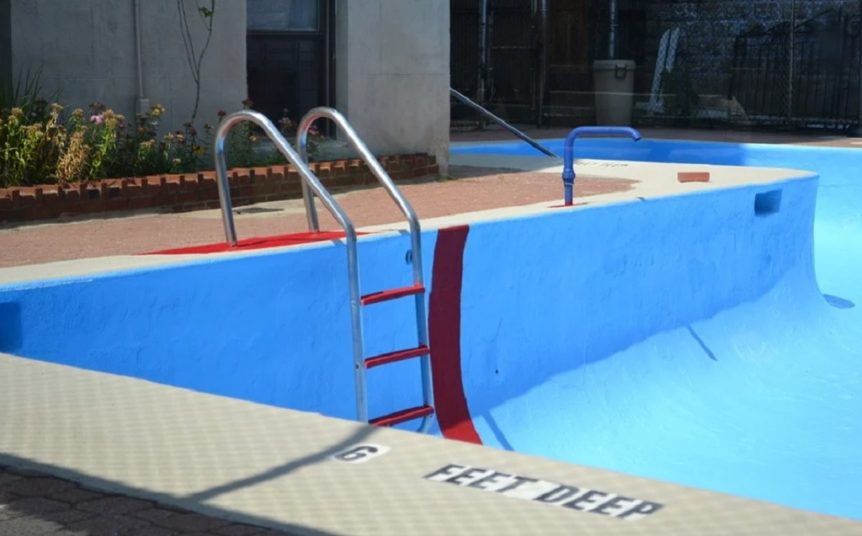If your pool looks murky or is filled with algae, your first thought might be to completely drain your pool and start over.
While there are times when this is necessary, draining also has its downsides, especially if performed too often. It’s important to know when to drain and when to simply treat.
Before you start draining your swimming pool, make sure it’s the right choice for your situation.
Common Reasons To Drain Your Pool
Draining isn’t necessarily bad. In fact, it’s needed from time to time. The most common reason is extremely high levels of total dissolved solids (TDS) and/or cyanuric acid. This typically happens over a period of years. Once TDS reaches levels of 2500 ppm or more, chemicals won’t balance your water back out.
The same holds true with cyanuric acid. Chemicals won’t remove it, which means you have to drain your pool, at least partially, to dilute it to safer levels.
Another reason to drain a pool is if it’s been neglected for a long period. Extreme algae build up, debris in the water and stagnant water that hasn’t been pumped through a filter in a while are going to be fixed with turning on the pump and using some chemicals.
Instead, you’ll likely need to complete drain and clean the pool before being able to use it safely.
Sometimes, you will need to partially drain your pool in the event of a hurricane or flooding conditions. This prevents overflow issues. However, you won’t need to drain much of the water.
Alternatives To Draining
Usually when you think about draining, you imagine a completely empty pool. This is necessary for certain situations. However, in most cases, you only need a partial drain at most. For instance, balancing TDS and cyanuric acid may be possible by draining half the water or less.
Also, check with a pool professional to see if there are treatment options to better balance and clean the water without draining. It’s always better to get a second opinion than drain your pool unnecessarily.
How Frequently Should You Drain Your Pool
While it might seem like a seasonal activity, you shouldn’t drain your pool too often. In fact, every three to five years is the standard recommendation. Of course, that may vary based on circumstances, such as a chemical imbalance, natural disasters, or damage to the pool itself. Obviously, certain major repairs will require draining.
Ideally, you should only partially drain the pool and add fresh water to solve most issues.
Problems With Draining
Outside of just the time consuming process of draining and refilling, there’s also the issue of cost. Filling a pool will raise your water bill. Plus, you have to start trying to balance the water chemistry from scratch, which takes additional chemicals.
Another issue is groundwater levels. Higher groundwater levels can actually push an empty in-ground pool out of the ground. Check these levels before proceeding. If they’re too high, either wait or try partially draining to fix your issue. Otherwise, you’ll need to pay professionals to essentially reinstall your pool.
Finally, delamination is possible. The sudden change between water and air can exacerbate the underlying issue, leading you to needing pool plaster repairs faster.
Other Things To Consider
When you do need to drain or even partially drain your pool, always turn the pump off. If the pump tries to run when your water levels are low, it will burn the pump out.
Also, check with the city to ensure when you can drain. Some areas may have rules against simply draining into the water supply since the water contains a variety of chemicals.
No matter what you decide, always talk with a professional pool service first to determine if draining is the right course of action. Doing this process wrong or at the wrong time could cost you far more than a simple consultation.
Regular pool maintenance helps reduce how often you need to drain the pool. Contact us today to let us help take care of the cleaning for you.
Image: ArtisticOperations
